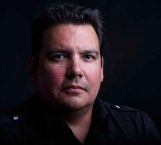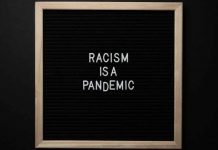WINNIPEG – OPINION – Joyce Echaquan felt she had no other choice but to broadcast online what she was experiencing, as she lay writhing and near-death in a hospital bed in Joliette, Que.
In the midst of begging for help Sept. 28, Echaquan activated Facebook Live and recorded hospital staff members swearing, telling her she was “stupid as hell,” “only good for sex,” and she’d be better off dead.
“What are your children going to think, seeing you like this?” one voice asks.
“And who do you think is paying for this?” another says.
Echaquan, a 37-year old Atikamekw mother of seven from the Nitaskinan territory of Quebec, died a short time later. Her cause of death is not yet known. She entered the hospital with stomach pains two days earlier. A coroner is investigating.
By Thursday, two hospital staff — one nurse and one orderly — had been fired.
On Friday, media reported the Joliette hospital, some 70 kilometres north of Montreal, has a long history of racism, uncovered by the Viens Commission (a provincial inquiry into the discrimination experienced by Indigenous peoples throughout Quebec society).
None of this is news to Indigenous peoples. We all have experienced racism in health care.
We know about how entering a hospital all-too-often means an end to Indigenous life, not a rescue.
We know about the discrimination, racism, and violence that happens in Canada’s hospitals every single day.
A few years ago, my father had a stomach ailment which caused him incredible agony. Our family took him to an emergency room in Winnipeg. The doctor’s first question when he entered the room, and in front of family, was if my father was drunk.
Later, when he asked valid questions about his symptoms, the doctor said, in a condescending tone: “Well, don’t you sound educated!”
In a hospital, it doesn’t matter who my father is (Sen. Murray Sinclair, Manitoba’s first Aboriginal judge and chairman of the Truth and Reconciliation Commission of Canada) and what he has accomplished: all that matters is he is an Indian.
The same could be said of Sanaye and Jacob Trout, children from Pimicikamak Cree Nation who died from Batten disease whose parents spent years fighting with nurses and doctors for basic health services.
The same could be said of Brian Sinclair, an Anishinaabe man who sat for 34 hours in Winnipeg’s Health Sciences Centre emergency room and slowly died while no one helped him.
This isn’t a case of “bad apples” — let’s get that argument out of the way — but power, privilege, and the way doctors, nurses, and other health-care providers are trained and rewarded.
In a 2016 study by the College of Family Physicians of Canada, researchers write: “Experiences of racism, including unfair treatment as a result of racism, have been reported in multiple Indigenous survey studies, across geographic settings, with prevalence rates ranging from 39 per cent to 78 per cent. In one Canadian study, this was so severe that Indigenous patients strategized on how to manage racism before seeking care in the emergency room.”
This is why Echaquan was armed with her smartphone: it was her only defence.
I’m frequently contacted by Indigenous people who have experienced racism in Manitoba hospitals. I am currently working on a story on an elder who was denied care, but given non-consensual treatments and demeaning statements from medical staff.
In the process, I have found there is virtually no ability for an Indigenous person to complain about racist treatment because it’s often labelled “hearsay” or chalked up to “misunderstanding.”
The excuses of high case loads, stress, and the pandemic are also prevalent. I get it: these are hard jobs, but there’s no excuse to treat anybody as less than a human being.
Last month, for the first time in Canada’s history, the University of Manitoba passed an anti-racism policy which will train doctors, nurses and other medical professionals on how to “recognize existing racism… eliminate all forms of racism, promote safe work and learning environments free of racism, and to intervene when witnessing any racism.”
This is a good start, but one wonders: why it has taken until 2020 for Canadian health-care providers to realize there is a problem?
And why people such as Joyce Echaquan, Sanye and Jacob Trout, and Brian Sinclair had to give their life to prove it. Niigaan Sinclair
Niigaan Sinclair
Originally appeared in the Winnipeg Free Press in October 2020. Republished with the permission of the author.
The views, opinions, and positions expressed by all columnists and contributors are the author’s alone. They do not inherently or expressly reflect the views, opinions and/or positions of NetNewsLedger.







